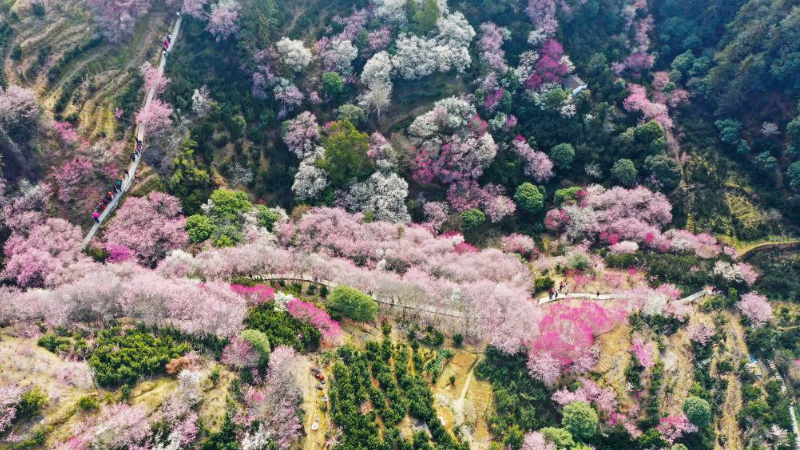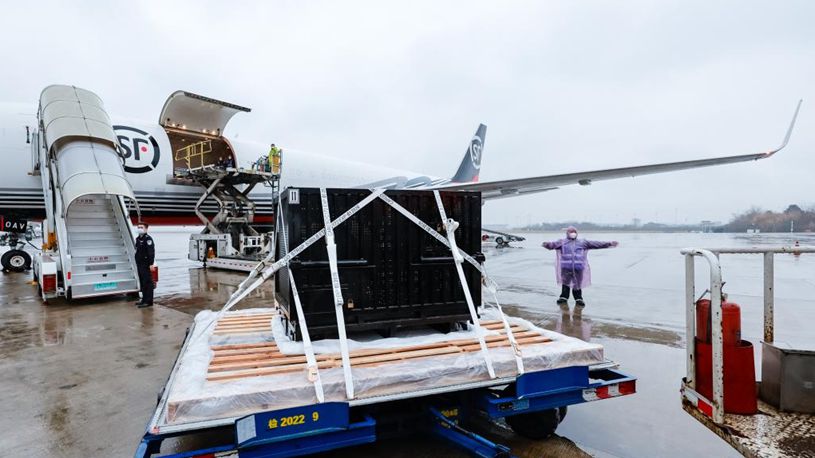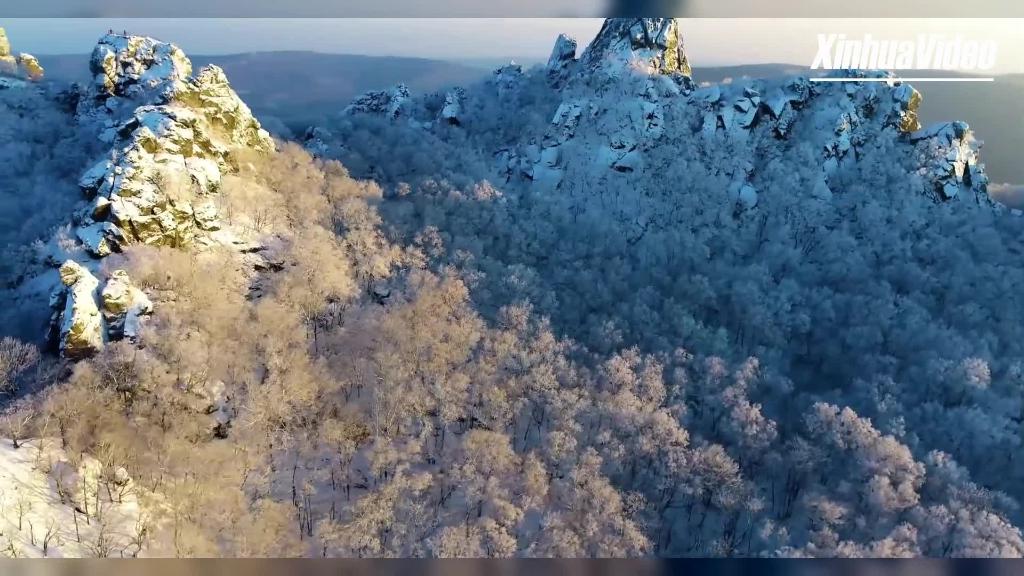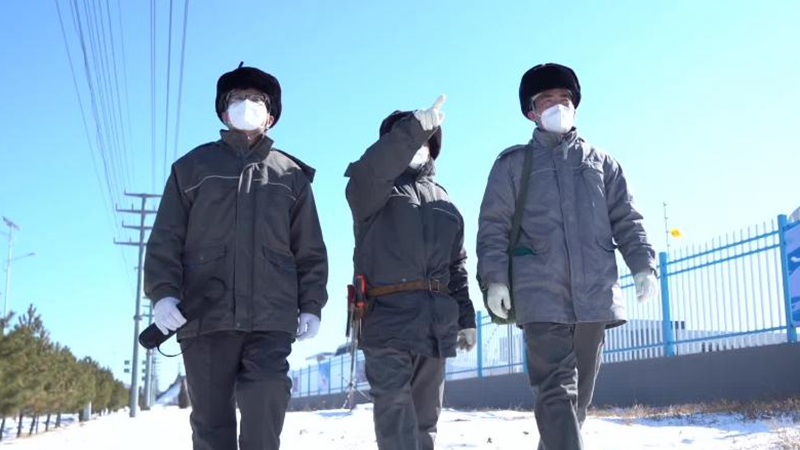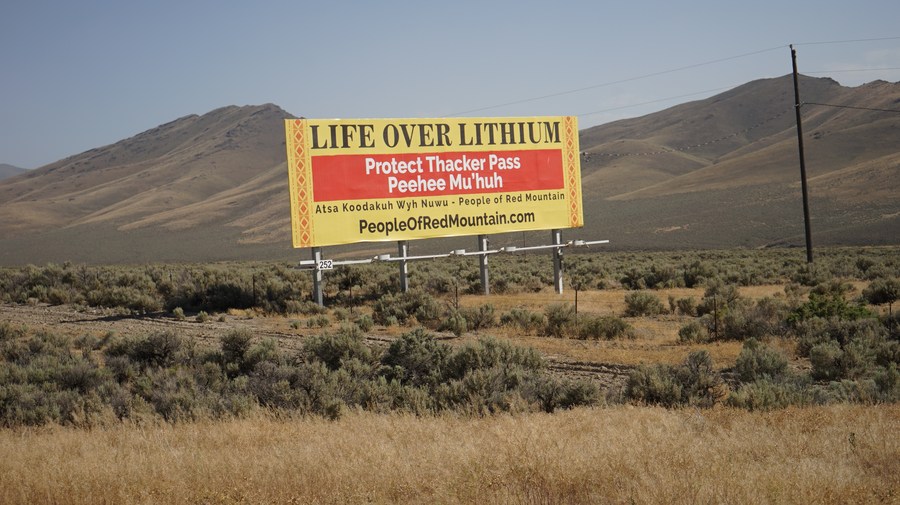
Photo taken on July 2, 2022 shows a sign against the proposed lithium clay mining development project, one of the largest in the world, by the side of the road to the project in Humboldt County, Nevada, the United States. (Photo by Zeng Hui/Xinhua)
A federal appeals court on Wednesday refused to block construction of the largest lithium mine in the United States, despite strong resistance from Nevada conservationists and tribes who claimed the government illegally approved it in a rush to produce raw materials for electric vehicle batteries.
LOS ANGELES, March 3 (Xinhua) -- The construction of the planned Thacker Pass lithium mine in the remote north of U.S. state of Nevada, the largest known lithium deposit in the United States, has drawn concerns and protests from environmental groups as well as Native American tribes.
A federal appeals court on Wednesday refused to block construction of the largest lithium mine in the country, despite strong resistance from Nevada conservationists and tribes who claimed the government illegally approved it in a rush to produce raw materials for electric vehicle batteries.
The Ninth U.S. Circuit Court of Appeals denied a request for an emergency injunction that would block Lithium Americas, the mining company developing the mine site, from moving forward with the project.
Lithium Americas said on Thursday it has begun construction at its Thacker Pass lithium project.
In an interview with Xinhua, John Hadder, director of Great Basin Resource Watch, expressed his concern that irreversible harm will be done to the cultural area and environment before the case is ruled in the Ninth Circuit.
"The judge did rule that the Bureau of Land Management did break the law by violating regulations under the Federal Land Policy Management Act, so the project should be stopped until this can be resolved," Hadder said.
There is also the outstanding aspect of the mining claims under the tailings dump and waste rock dump areas. "In order for the current mine plan to go forward, the mining claims will need to be validated. This seems unlikely since millions of tons of waste is to be put on these areas indefinitely," he told Xinhua.
The proposed lithium clay mining development project, one of the largest in the world, is located in Humboldt County, about 25 miles from the Nevada-Oregon border.
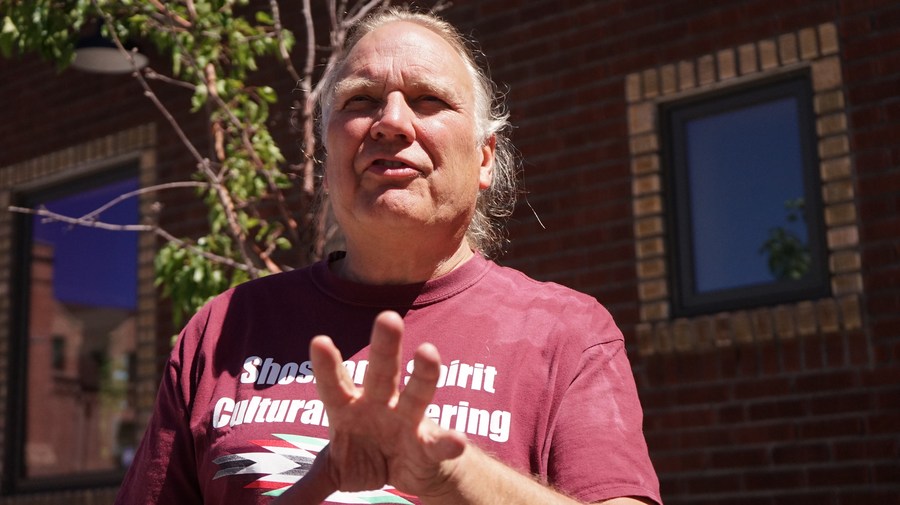
John Hadder, director of Great Basin Resource Watch, talks with Xinhua in an interview in Reno, Nevada, on July 1, 2022. (Photo by Zeng Hui/Xinhua)
Lithium Americas received a permit from the Bureau of Land Management to develop the mine in January 2021. Soon after the permit was issued, several lawsuits were filed in federal court seeking to slow or halt the project.
The lawsuits claimed that the land is sacred ground for American Indians and argued that the project will damage the local environment.
"This monstrous mine will permanently obliterate sagebrush winter habitat and a movement corridor that is at the heart of sage-grouse, mule deer and pronghorn survival in the high desert environment of the Montana Mountains," said Katie Fite, Public Lands director at WildLands Defense.
Sage-grouse will soon begin their elaborate mating displays. The birds will be driven off lek display grounds and nesting sites by the hellish noise and construction disturbance of an open pit mine, she said.
The Bureau of Land Management's approval of Thacker Pass mining "exposes how hollow and false its claims of sage-grouse conservation really are," Fite said.
Hadder noted that the current rulings should not be a justification for fast-tracking permitting of mines even for energy transition minerals.
"We must not relax our standards and analysis or we are likely to end up with more toxic mine sites across the U.S. that could be a source of long term pollution and drive climate change," he told Xinhua.
"Modern mining is very environmentally destruction and often disruptive to communities, so it needs to be carefully and judicially, which not what has happened at Thacker Pass," Hadder said. ■



